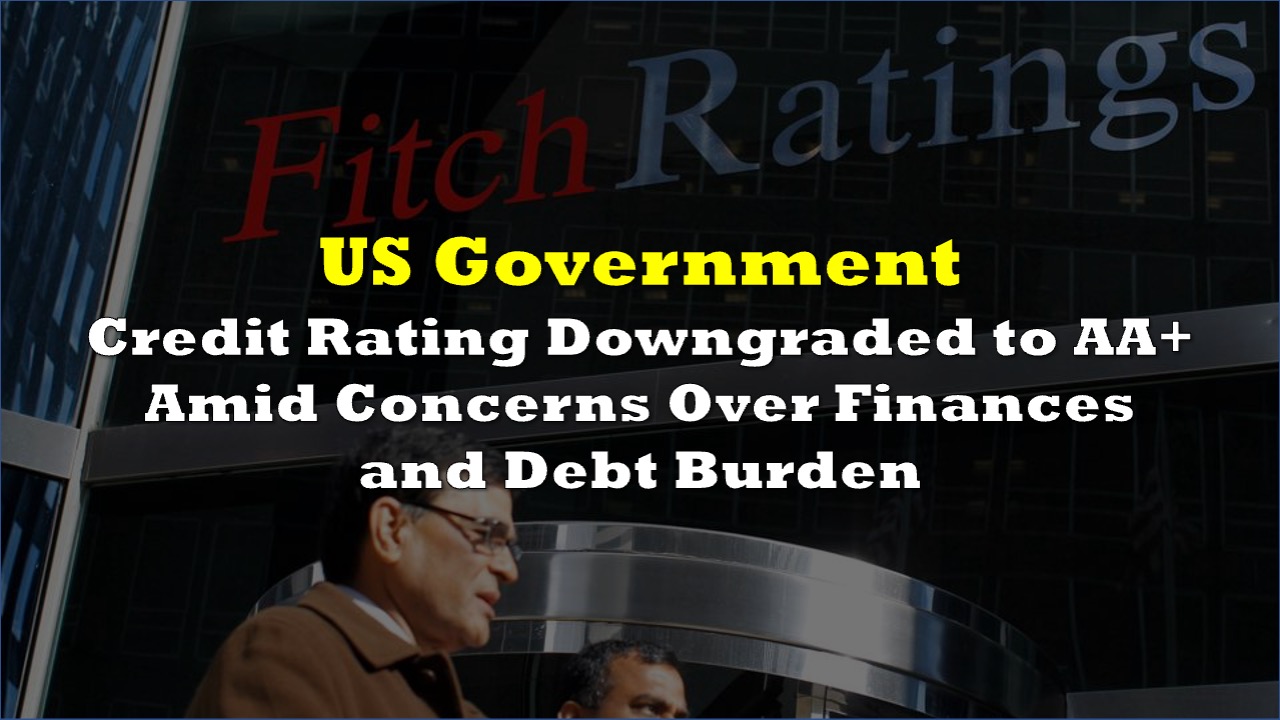Credit rating agency Fitch has downgraded the United States government’s credit rating from AAA to AA+ due to concerns over the country’s financial stability and mounting debt burden.
Fitch is one of the three major independent agencies that assess creditworthiness, and its decision has sparked debates among economists and policymakers.
Fitch justified its decision by pointing out a “steady deterioration” in governance over the last two decades, which has had a significant impact on fiscal and debt management matters. However, US Treasury Secretary Janet Yellen has called the downgrade “arbitrary,” claiming that it is based on outdated data from the period between 2018 and 2020.
Yellen emphasized that US Treasury securities remain a safe and liquid asset, and she believes that the American economy is fundamentally strong.
The timing of the downgrade has left many economists surprised, especially as the US economy has appeared stronger than expected. Some experts, like former US Treasury Secretary Larry Summers and Mohamed El-Erian, the chief economic adviser at Allianz, have labeled the decision as “bizarre” and “strange.”
Fitch downgrades the U.S., a decision widely and correctly ridiculed; it doesn't make sense even on their own stated criteria 1/ https://t.co/1ZC9YhlOLn
— Paul Krugman (@paulkrugman) August 1, 2023
One of the factors contributing to the downgrade was the recent political showdown over government borrowing. In June, the US government managed to lift the debt ceiling to a staggering $31.4 trillion, but only after a prolonged and contentious political battle that raised the specter of the country defaulting on its debts.
Some people are saying the Fitch downgrade is unfair.
— Lyn Alden (@LynAldenContact) August 2, 2023
But really, if we had to consider the *remote* possibility of a brief technical default between these three entities over the next five years:
Johnson and Johnson: AAA
Microsoft: AAA
U.S. Congress: AA+
Which would we pick? pic.twitter.com/wiyFEvKeRo
Looking ahead, Congress faces the challenge of reaching an agreement on next year’s budget before the end of September to prevent a government shutdown.
The rating downgrade reflects Fitch’s expectations of fiscal deterioration over the next three years, along with a high and growing general government debt burden, adding to concerns about governance relative to peers. Fitch also predicts that the US may slip into a mild recession later this year.
“The agency sees U.S. annual real GDP growth slowing to 1.2% this year from 2.1% in 2022 and overall growth of just 0.5% in 2024. Job vacancies remain higher and the labor participation rate is still lower (by 1 pp) than pre-pandemic levels, which could negatively affect medium-term potential growth,” they wrote.
Despite the rating change, financial markets are expected to have minimal direct impact as major holders of Treasury securities are unlikely to be forced to sell based solely on the downgrade. Allianz’s Chief Economic Adviser Mohamed A. El-Erian said that he expects this downgrade “to be dismissed than have a lasting disruptive impact on the US economy and the markets.”
In a strange move, #Fitch just downgraded the US sovereign #ratings from AAA to AA+, with a stable outlook.
— Mohamed A. El-Erian (@elerianm) August 1, 2023
The #rating agency's justification is set out in this statement (link below).
I am very puzzled by many aspects of this announcement, as well as by the timing.
I suspect I…
Information for this story was found via Fitch Ratings, BBC, Twitter/X, and the sources and companies mentioned. The author has no securities or affiliations related to the organizations discussed. Not a recommendation to buy or sell. Always do additional research and consult a professional before purchasing a security. The author holds no licenses.









